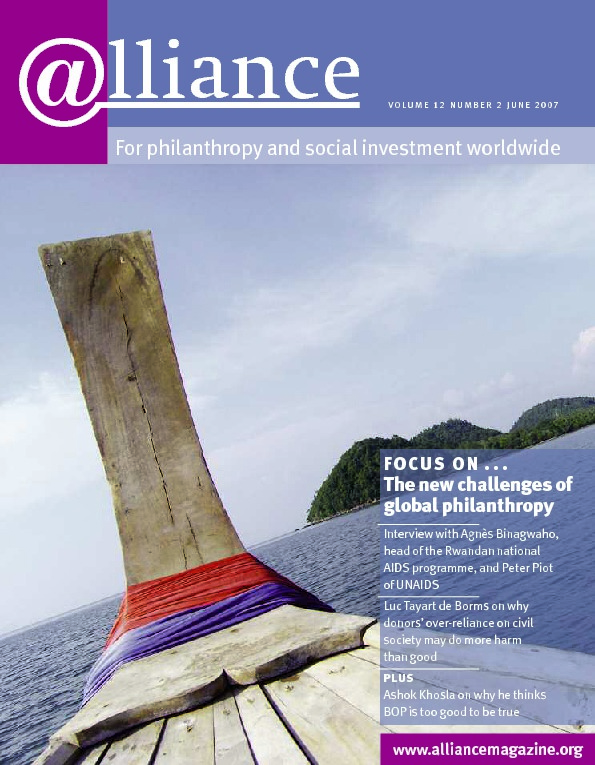James Shaw-Hamilton’s article in the March issue of Alliance reported that the Government of Pakistan was working closely with NGOs, with the assistance of the UK Charity Commission, to develop a Code of Conduct for regulators and NGOs. Since then, the situation seems to have deteriorated, with some NGOs in vocal opposition.
Despite a government offer to revise the code to take account of their earlier objections, some Pakistani NGOs have rejected the proposed code of conduct. Their position, basically, is that while no credible NGO objects to governmental efforts to achieve complete financial transparency and accountability in both government and non-governmental sectors, there should be no code or law whose interpretation might obstruct the work of organizations working for citizens’ rights. Any code of conduct should be developed by NGOs themselves rather than the government – indeed the Pakistan NGO Forum already has a code of conduct for NGOs, and there have been other previous attempts to develop codes from within the sector.
Their original rejection, in February, was on the basis of the code’s being politically motivated, ambiguous and contrary to the law. Harris Khalique of Strengthening Participatory Organization (SPO) also objected to the fact that the code was drafted in English and was accessible only on the internet, while the vast majority of rural NGOs/CBOs have access neither to electricity nor to computers. The code, he said, was prepared by UK-based consultants from the Charities Commission so was not an indigenous exercise.
According to SPO representative Malick Shahbaz Ahmad, NGOs were informed of the decision to revise the code at a meeting called by a foreign mission, where they were told by an official of the Charity Commission that the ministry involved, the Ministry of Social Welfare and Special Education, would revise the code in the light of a position paper drafted earlier by the NGOs. Government officials, meanwhile, deny involvement of any foreign mission and insist the code was ‘authored and owned’ by the ministry and that it only benefited from the expertise of the International Programme of the Charity Commission.
James Shaw-Hamilton commented to Alliance that regulation in any country should achieve a balance between the interests of the government in protecting the public and those of NGOs to work unhampered. ‘It is not easy to get the balance right since success is often in the eye of the beholder,’ he said. ‘In Pakistan, 400 plus NGOs have been involved in consultations across the country since September last year. These workshops have supported the development of the code and improved its drafting. Unlike other codes, this draft describes what the sector can expect of the government, and will be overseen jointly by the government and the sector.’
Source
Dawn, 14 February and 6 March 2007





Comments (0)